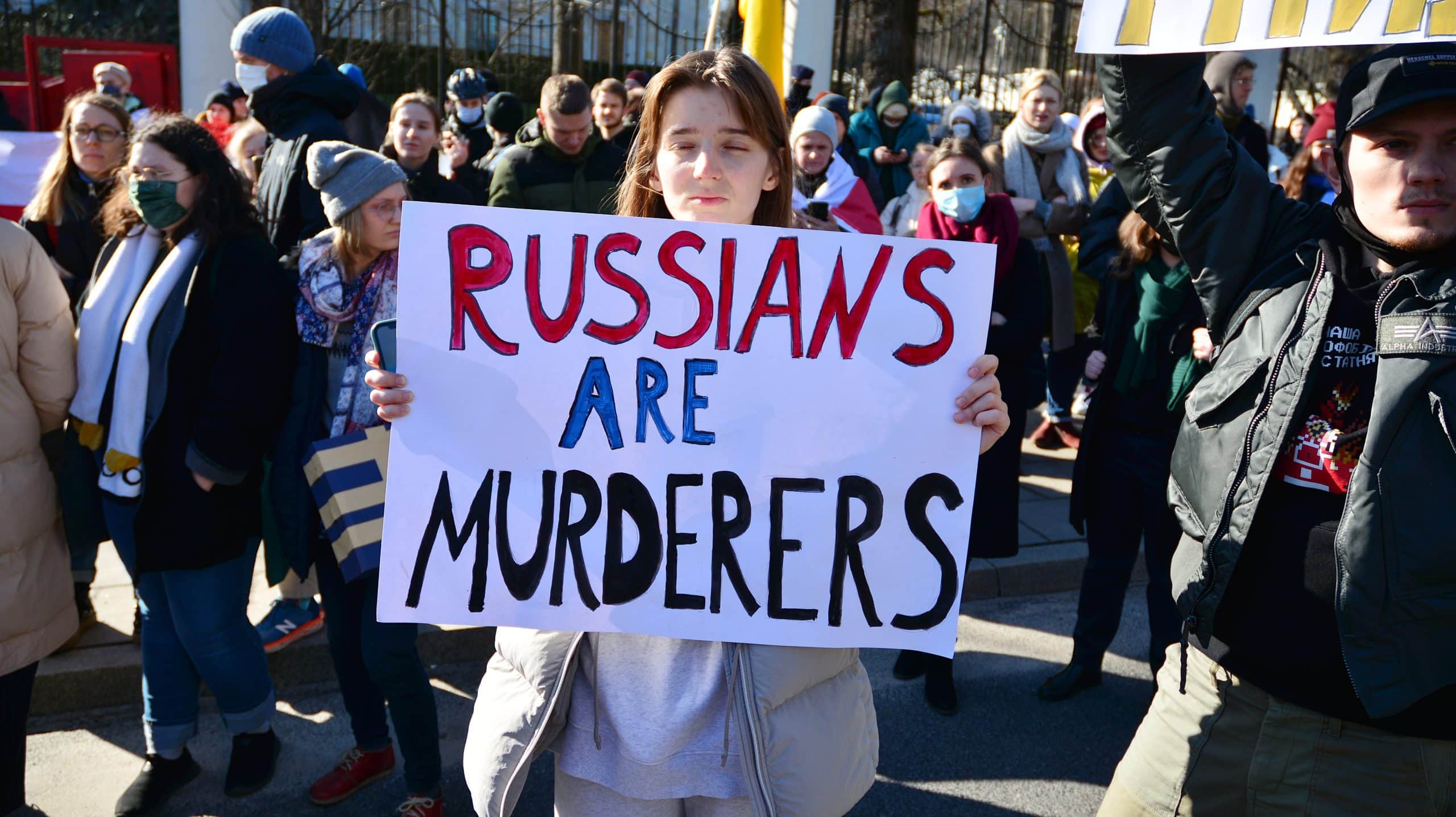
Following Russian President Vladimir Putin’s military invasion of Ukraine, Russians and Russian-speaking Germans have increasingly been the targets of seething ethnic hostility in the past few weeks, facing hundreds of attacks and exclusion from healthcare facilities and restaurants.
The number of insults, threats, acts of vandalism, instances of exclusion, and physical attacks carried out against those with Russian heritage has increased sharply throughout ‘liberal, tolerant’ Germany, with the Federal Criminal Police Office (BKA) registering more than 300 criminal incidents since Putin’s military incursion into Ukraine began three weeks ago, several German press agencies have reported.
While the BKA registered 318 ‘criminal-relevant events,’ ranging from acts of property damage to insults and threats on the internet and on the street, police in Berlin have recorded some 86 criminal incidents against ethnic Russians, the German newspaper Die Welt reports.
The escalating Russophobia doesn’t end there, however. Weeks ago, in an apparent attempt to signal its virtue and express ‘solidarity’ with the Ukrainian people, the Iatros Klinic, a private health clinic based in Munich, announced in a letter that it would no longer be treating Russian and Belarusian patients, sparking widespread criticism and accusations of virulent racism, RTL News reports.
The letter, among other things, says: “We strongly condemn the invasion of the Russian army with the cooperation of the Belarusian government. Therefore, from now on and until further notice, we will not treat Russian and Belarusian citizens.”
In a post to social media, VOX MEP Hermann Tertsch strongly condemned the health clinic’s ethnically-based treatment policy, writing: “The hysterical Russophobia and the measures that are pronounced and implemented here by the Iatros Clinic in Munich are horrific and illegal. Putin and Lukashenko deserve everything. But is abominable to treat the sick in this way because of their nationality.”
Grauenhaft und illegal sind die hysterische Russophobie und die Massnahmen, die hier von der Iatros Klinik in München ausgesprochen und betrieben werden. Putin und Lukashenko verdienen alles. Aber es ist abscheulich so mit Kranken, ihrer Nationalitäts wegen, umzugehen. pic.twitter.com/rAqaIcNb5r
— Hermann Tertsch (@hermanntertsch) March 11, 2022
German restaurant owners have also expressed the desire to ban Russians from their establishments. Weeks ago, Harald Schröder, the owner of Traube Bietigheim, a restaurant in the federal state of Baden-Württemberg, wrote in a social media post that would-be patrons holding Russian passports were not welcome in his restaurant, the regional newspaper Badische Neueste Nachrichten reported. Schröder later apologized for statements after facing widespread condemnation from his local community.
Amid the unprecedented uptick in cases of violence, intimidation, and discrimination against Russians, Reem Alabali-Radovan, who serves as Germany’s first-ever anti-racism commissioner, expressed deep concern over the situation, saying: “Some people no longer dare to speak Russian on the street. That worries me a lot.”
“There were also attacks on Russian food markets, and children are insulted at school. We cannot tolerate that,” she added.
Over the weekend, amid sky-high tensions, Margot Käßmann, a Lutheran theologian who formerly served as the Landesbischöfin of the Evangelical-Lutheran Church of Hanover, strongly condemned the widespread Russophobia sweeping across Germany in an opinion editorial penned for the German tabloid Bild.
“We are all shocked by the pictures from Ukraine,” Käßmann began. “But that must not lead to hatred of people who come from Russia. The fact that children are harassed and that restaurants do not want to serve Russian guests is not at all acceptable,” she continued, citing a recent instance of a young girl who faced insults and harassment at school for being Russian.
“The family has lived in Germany for decades. She was very happy when she was able to leave Russia,” Käßmann said, adding: “Anna was born here, I baptized her. Her parents both work, as do her siblings. They are Germans!”
The proliferation of caustic Russophobia has drifted beyond German borders. Late last month, Prime Minister of the Czech Republic Petr Fiala—while speaking on CNN Prima—was forced to condemn attacks against Russian schoolchildren in his country’s primary schools.
“These are things that must not happen. I must condemn them. We have a lot of Russians who do not want anything to do with the Putin regime,” Fiala said.
The proliferation of ethnic hatred directed at ordinary Russians, which in many circles now seems increasingly socially acceptable, could at least in part be explained by a recent decision made by Facebook which has afforded users “their ‘two minutes of hate’, telling them, in its great wisdom, which enemies are allowed,” as Hélène de Lauzun put it in a recent commentary for The European Conservative.
